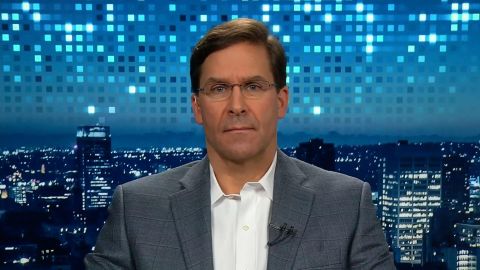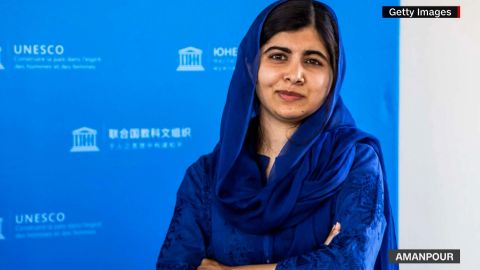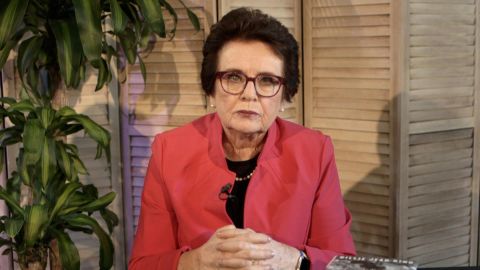Read Transcript EXPAND
CHRISTIANE AMANPOUR: So, Malala, let me ask you this, because, as we said, in 2012, you yourself were attacked by Pakistani Taliban. You come from Pakistan, and it was the Pakistani Taliban that shot you in the head. Just remind us of how intense was the disregard for girls and women like yourself, that they would climb aboard a school bus and try to shoot you and kill you for just wanting to go to school. Just remind us of that reality that existed back then.
MALALA YOUSAFZAI, NOBEL PEACE PRIZE WINNER: The Pakistani Taliban actually emerged from the same ideology of the Taliban that started in Afghanistan. The Taliban have a long history. They have many leaders. And they have many small groups. And, overall, they work on the same ideology of the so-called spreading of Islam, bringing in their own Sharia law, and actually just silencing women and using force and violence. And that’s what — exactly what they did in Swat Valley when they came in 2007. And they started imposing restrictions on women to go to market, to do jobs. They announced a ban on girls education. I was 11 years old at the time, and I could not go to school. I had to hide my books under my scarf. I could not even wear my school uniform because of the fear that, if they recognized me as a student, they might attack me, they might throw acid on my face. And there were many bomb blasts, firings every night. So those two years were one of the — were some of the worst years of my life. Those were the darkest days. And it also displaced so many people in Swat Valley. Hundreds and thousands of people became displaced internally within Pakistan because of the military operations that were required after on. And the Pakistan army then pulled out the Taliban from Swat Valley. But the damages that they caused took years and years to recover, to — and the rehabilitation and reconstruction process is a long process. And that worries me about Afghanistan as well, because Afghanistan has suffered for four decades. That’s 40 years from one war to another, from one geopolitical war of some countries are involved in, and then other countries are involved. Then other global powers are involved.
AMANPOUR: Yes.
YOUSAFZAI: But the people who suffer the most Afghan people. And I’m worried, you know, it will take years and years for the Afghan people to recover from this.
About This Episode EXPAND
Former Defense Secretary Mark Esper and Nobel Peace Prize Laureate Malala Yousafzai weigh in on the unfolding situaiton in Afghanistan. Tennis legend Billie Jean King discusses her new memoir “All In.”
LEARN MORE


